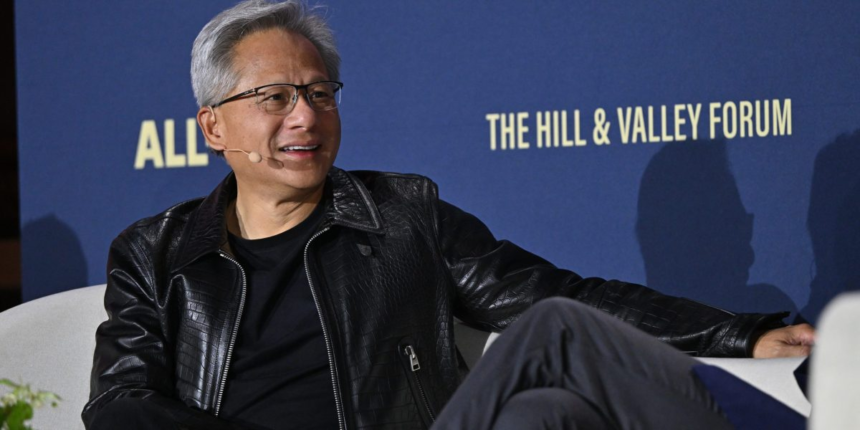It may take some time for Nvidia to see an upside from U.S. President Donald Trump’s unprecedented offer to allow AI chip sales to China in exchange for a 15% cut.
But during Nvidia’s earnings call on Wednesday, CFO Colette Kress noted that while the U.S. government has expressed an “expectation” that it’d get 15% of Nvidia’s H20 revenue, it “has not published a regulation codifying such requirement.”
Nvidia reported $46.7 billion in quarterly revenue, a 56% jump year-on-year, even as Nvidia revealed that it didn’t ship any H20s to Chinese customers last quarter. Quarterly profit also jumped by 59% to hit $26.4 billion.
The company forecast $54 billion in revenue for the next quarter, which would represent a more than 50% jump from the same period a year earlier.
Nvidia did not include possible H20 sales to China as part of its forecast, citing “geopolitical issues”. Yet in her remarks, Kress said the company could see as much as $5 billion in H20 revenue in the coming quarter if geopolitical issues recede. “Every licensed sale we make will benefit the U.S. economy,” she said.
Sales to customers that use China as a billing location dropped to $2.8 billion, down from $3.7 billion a year ago.
Revenue from customers that invoice in Singapore rose 80% to $10.1 billion. In its stock filing, Nvidia clarified that revenue booked to Singapore involves products that are “almost always shipped elsewhere,” and added that 99% of its “controlled Data Center compute revenue” billed to Singapore came from U.S. based customers last quarter.
Despite the more-than-50% jump in revenue, Nvidia shares dropped by 3.1% in extended trading, as data center revenue, at $41 billion, missed some of the more bullish estimates from analysts.
Asian tech had a mixed reaction to Nvidia’s earnings. Taiwan Semiconductor Manufacturing Company fell by 2.5%. Foxconn, which makes AI services, dropped by 1.0%.
Yet SK Hynix, a Korean supplier of high-bandwidth memory to Nvidia, jumped by 3.3%. Tokyo Electron, a major manufacturer of chipmaking equipment, rose by 1.9%.
In its stock filing, Nvidia gave another stark warning about its competitive position in China going forward. “We may be unable to create a competitive product for China’s data center market that receives approval from the USG,” it warned. “In that event, we would effectively be foreclosed from competing in China’s data center computing/compute market.”
On Wednesday, Huang suggested that China could offer Nvidia a $50 billion opportunity for the year, “if we were able to address it with competitive products.”
“The vast majority of the leading open source markets are created in China, and so it’s fairly important, I think, for the American technology companies to be able to address that market,” Huang said Wednesday. “The open source models that have come out of China are really excellent.”
Earlier this month, Trump suggested that he was open to Nvidia selling a version of its powerful Blackwell processor for the Chinese market. CEO Jensen Huang previously confirmed that discussions were taking place, and in Wednesday’s earnings call, said “the opportunity for us to bring Blackwell to the China market is a real possibility.”
“We just have to keep advocating for the sensibility of and the importance of American tech companies to be able to lead and win the AI race and help make the American tech stack the global standard,” Huang said.









